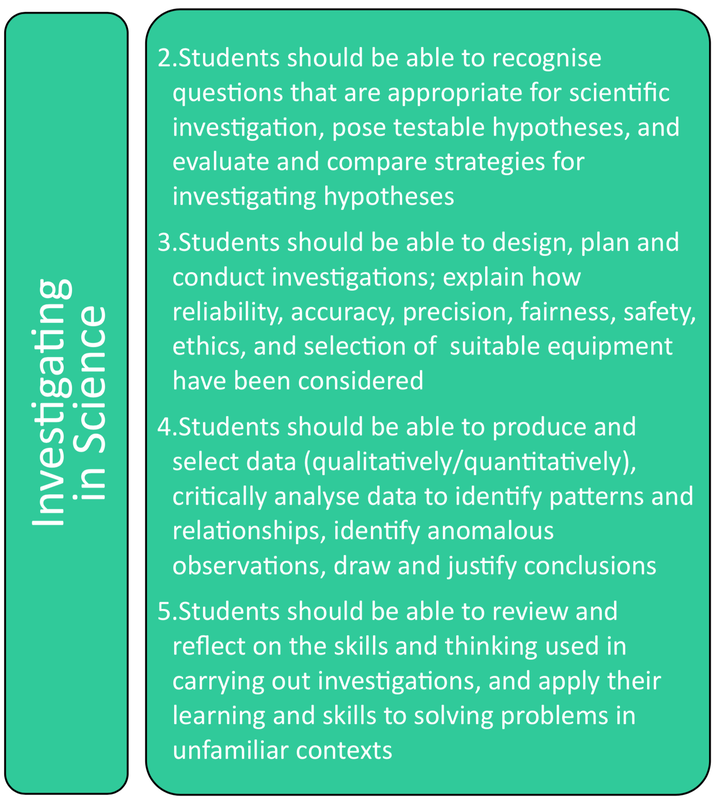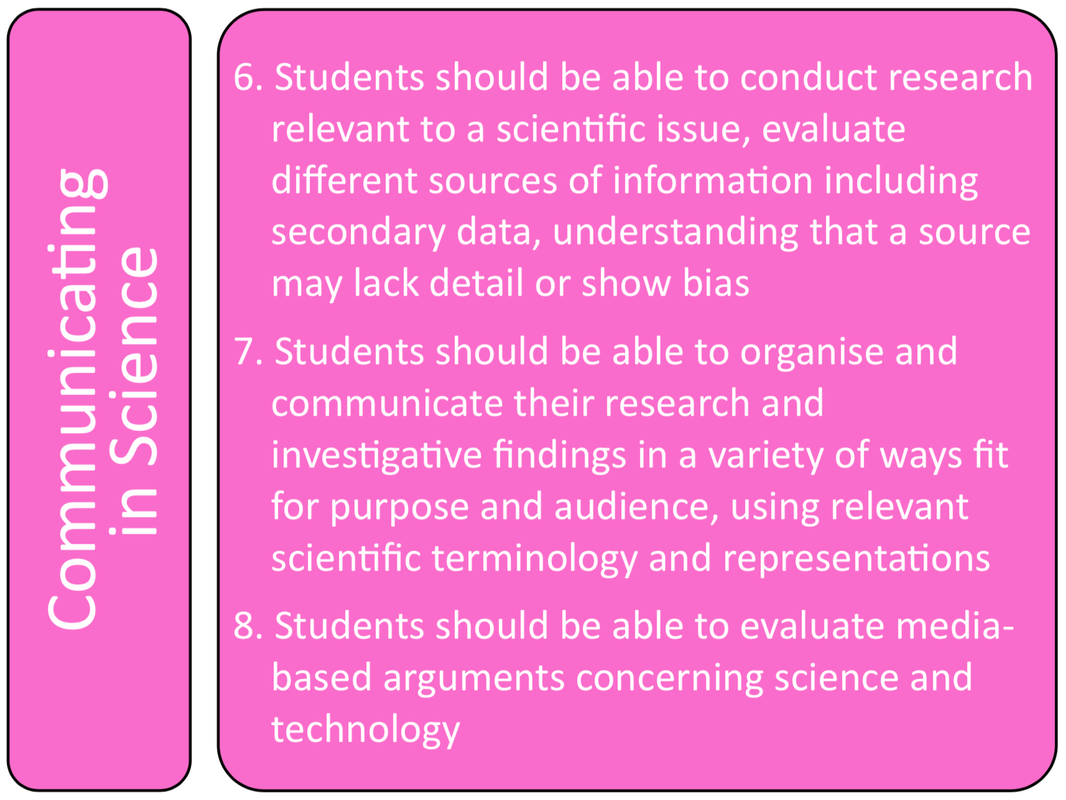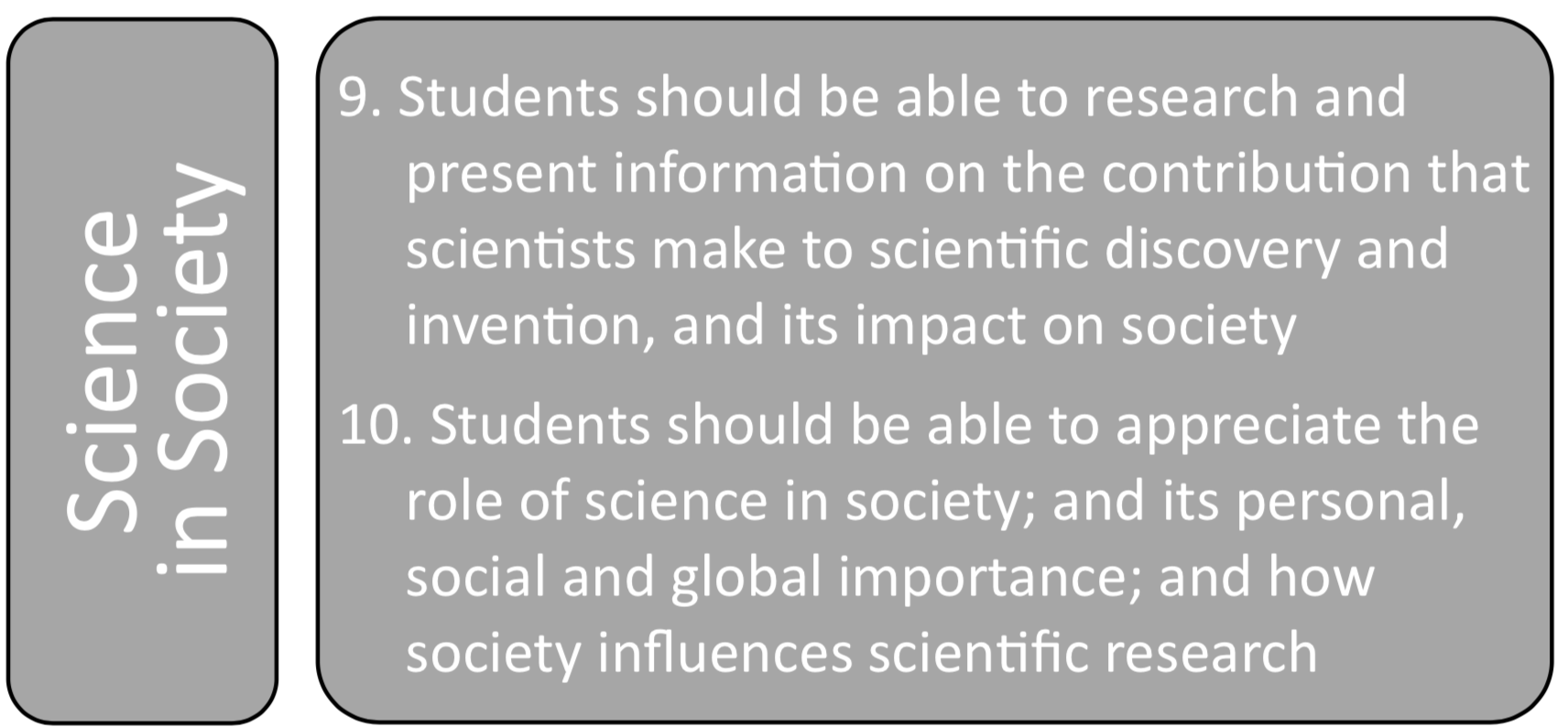Nature of science
This is the unifying strand; it permeates all the strands of the specification. The elements of this strand place a focus on how science works; carrying out investigations; communicating in science; and developing an appreciation of the role and contribution of science and scientists to society. There is a strong focus on scientific inquiry. There is no specific content linked to the Nature of science strand itself, and its learning outcomes underpin the activities and content in the contextual strands. The learning outcomes are pursued through the contextual strands as students develop their content knowledge of science through scientific inquiry. In doing so, students construct a coherent body of facts, learn how and where to access knowledge, and develop scientific habits of mind and reasoning skills to build a foundation for understanding the events and phenomena they encounter in everyday life. This makes the science classroom a dynamic and interactive space, in which students are active participants in their development. They can engage not only in experimental activities and discussion within the classroom, but also in researching and evaluating information to look beyond claims and opinions to analyse the evidence which supports them.
This is the unifying strand; it permeates all the strands of the specification. The elements of this strand place a focus on how science works; carrying out investigations; communicating in science; and developing an appreciation of the role and contribution of science and scientists to society. There is a strong focus on scientific inquiry. There is no specific content linked to the Nature of science strand itself, and its learning outcomes underpin the activities and content in the contextual strands. The learning outcomes are pursued through the contextual strands as students develop their content knowledge of science through scientific inquiry. In doing so, students construct a coherent body of facts, learn how and where to access knowledge, and develop scientific habits of mind and reasoning skills to build a foundation for understanding the events and phenomena they encounter in everyday life. This makes the science classroom a dynamic and interactive space, in which students are active participants in their development. They can engage not only in experimental activities and discussion within the classroom, but also in researching and evaluating information to look beyond claims and opinions to analyse the evidence which supports them.






